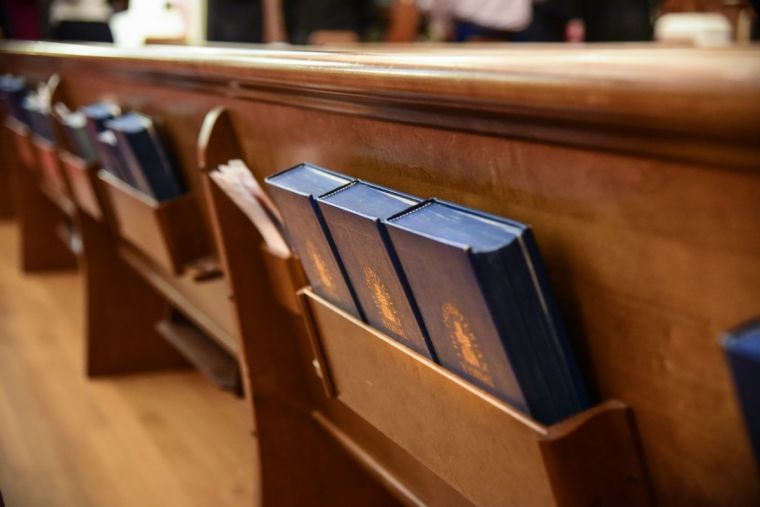Dozens of Christian leaders sue Government over closure of churches during lockdown

Some 25 church leaders are suing the Government over the forced closure of churches during lockdown.
The Government announced last week that churches could re-open for services on 4 July, having already been allowed to open for private prayer for several weeks.
However, a coalition of church leaders says the announcement does not go far enough and that churches should never have been closed in the first place.
The group, who said the blanket closure of churches was unnecessary, is asking the High Court to protect the ancient liberties of the Church as guaranteed in Magna Carta.
Matthew Ashimolowo, Senior Pastor of Kingsway International Christian Centre (KICC), one of the biggest churches in the UK, accused the Government of a "total lack of understanding" with regards to how churches function and their place in local communities.
"The ongoing approach to the church is not helping our communities who see the church not just as a place to go for personal prayers, but where their whole life revolves around," he said.
"The church is led by responsible people who are well able to put all the necessary preventive measures in place to avoid the spread of the virus like all other organisations.
"We have already invested a lot in fogging machines, sanitisation tunnels and temperature detectors. We should not have been relegated to the back of the queue for reopening."
John Quintanilla, the pastor of Hebron Christian Faith Church in Coventry, said: "For the first time in centuries, the government made it a criminal offence to go to church on a Sunday. We cannot let this go unchallenged. We need assurances this will not happen again."
Other church leaders joining in the legal action include Christian Concern co-founder Rev Ade Omooba MBE, President of Eurovision Mission to Europe Dr David Hathaway, former Chaplain to the Queen Dr Gavin Ashenden, and President of Oxford Centre for Training, Research, Advocacy and Dialogue, Bishop Michael Nazir-Ali.
While the Government has set out guidance for churches ahead of 4 July, the church leaders say the document does not resolve the question of the Government's interference in church independence.
They argue that the Government should only have given "advice" on limiting the spread of Covid-19, instead of legislation that was "backed by a threat of criminal sanction", which they say breached article 9 of the European Convention on Human Rights protecting religious freedom, and the first clause of Magna Carta declaring the Church of England to be free with "whole rights and liberties inviolable".
In a further demand, the group is asking that the Government refrain from enforcing fines and penalties issued to church leaders who broke lockdown rules.
High Court Judge Mr Justice Swift said the case "raises significant matters" and has ordered the Government to respond by 15 July.
Rev Omooba called on the Government to recognise the principle of church autonomy from the state and "urgently" rescind restrictions on church ministry.
"The Government decided unilaterally to treat Churches as non-essential despite the clear importance of gathered worship to Christians," he said.
"Blanket bans were imposed on churches while businesses were trusted to make their own decisions. Even in the relaxation of measures announced this week, pub and restaurant owners seem to be more trusted than church leaders. This cannot be right and leaves us with no choice but to take legal action.
"The government should allow churches to make their own decisions about what kind of ministry to host in their buildings, rather than continuing to impose highly restrictive constraints."
Rev Melvin Tinker, Vicar of St John Newland, Hull, said: "The church by definition is a 'gathering' thus if such gatherings are not allowed it follows churches are ceasing to exist. For Christians, 'religion' is not a private affair, it has a social dimension which is basic.
"To take this away by legislation is to effectively dismantle the exercising of the Christian religion. Given the unquestionable Christian basis for many of the liberties we enjoy in the West - including democracy itself, the prohibition of churches signifies a massive departure from our heritage and promotes the secularisation process which marginalises the religion aspect of society."











